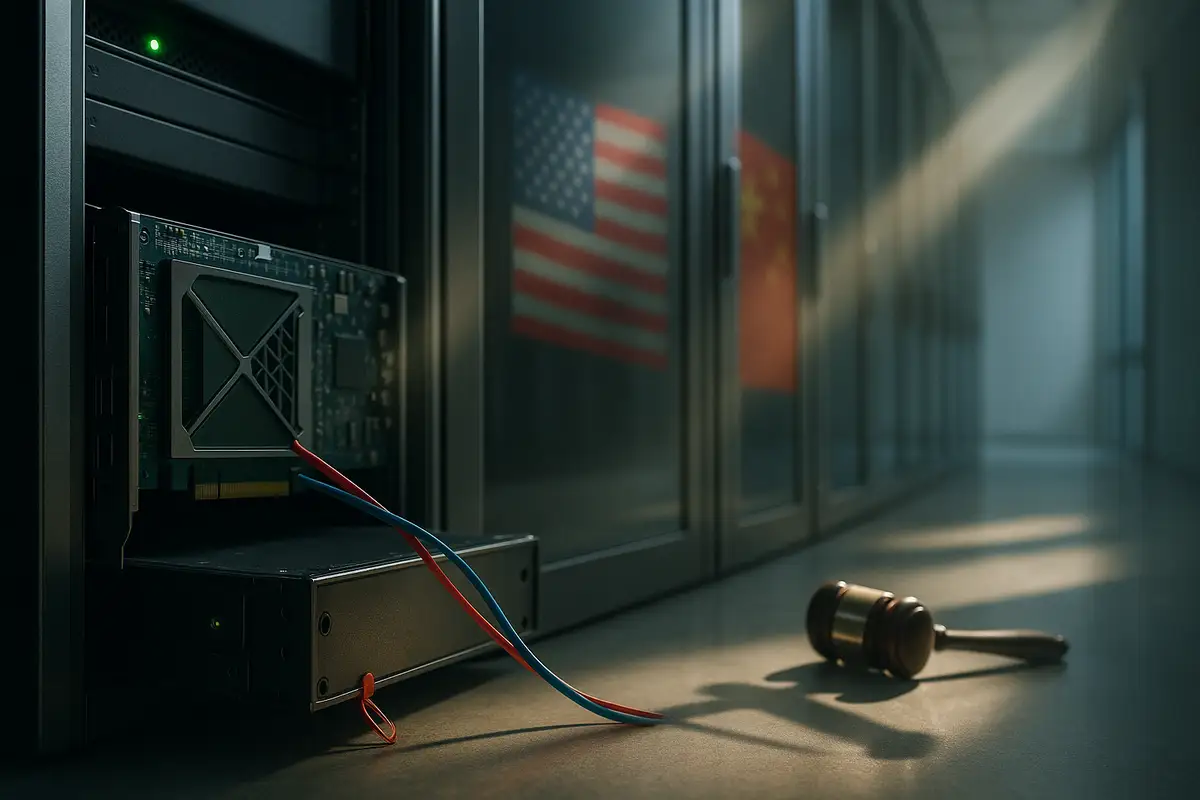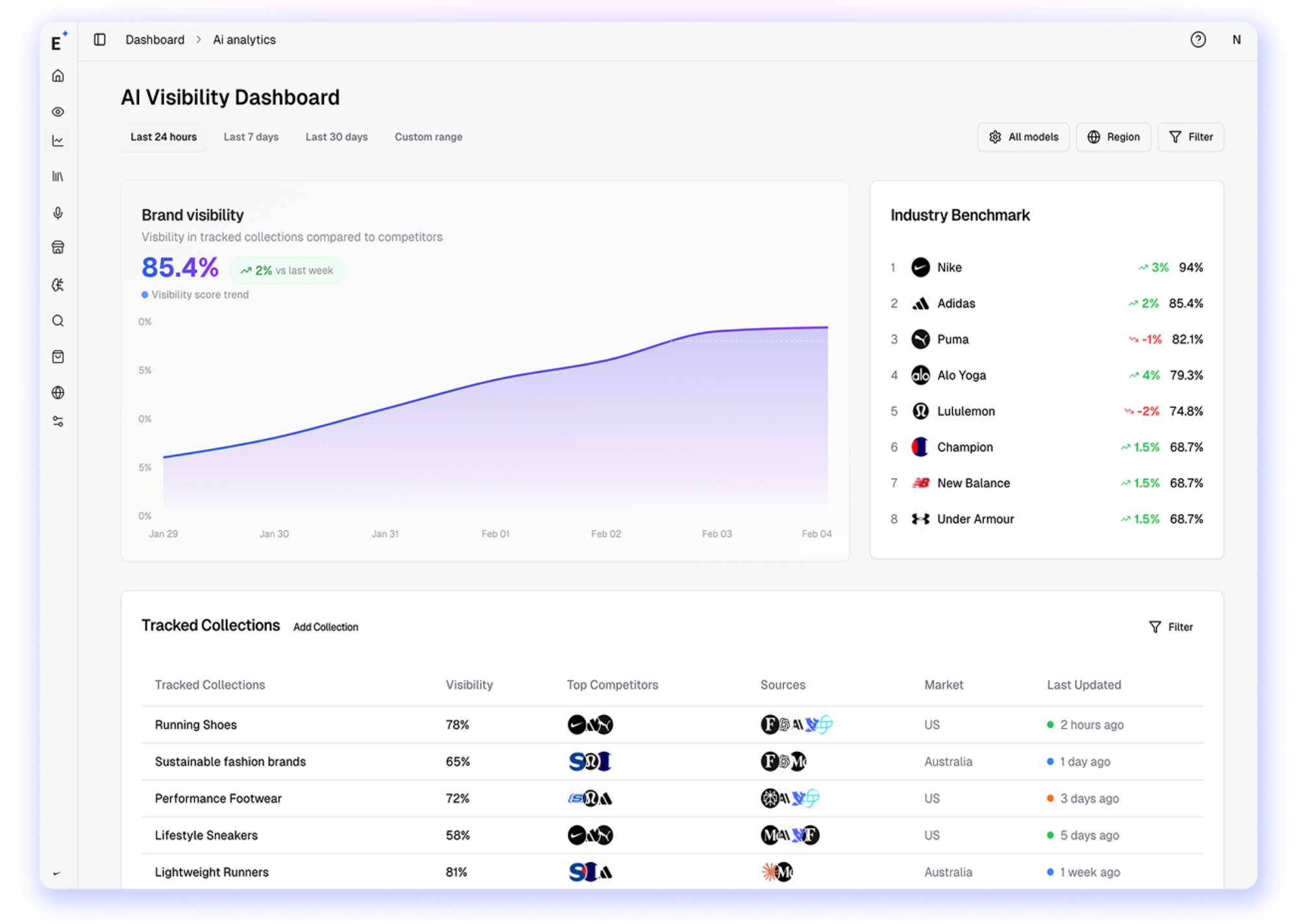Good Morning from San Francisco,
Women now own ChatGPT. The user base flipped to 52% female, crushing early 2023's 80% male dominance. Programming queries dropped to 4.2% while writing assistance surged. Universities scrambled to match reality: 92% of students already use AI, so institutions reversed course from bans to "support structures."
Meanwhile, China weaponized bureaucracy. Beijing timed Nvidia's antitrust violation announcement perfectly with Madrid trade talks, creating impossible legal binds. Nvidia faces competing sovereign demands: China's 2020 approval required non-discriminatory chip sales, but US export controls since 2022 banned those same sales.
Demographic shifts signal utility status. Regulatory theater exposes geopolitical chess moves.
Stay curious,
Marcus Schuler
ChatGPT user base flips male to female

Women now comprise 52% of ChatGPT users, reversing the 80% male dominance from early 2023. OpenAI's economic research tracks this demographic shift alongside explosive growth to 700 million weekly users sending 2.5 billion daily messages.
The gender flip coincides with usage patterns shifting from technical applications to practical ones. Programming queries dropped to 4.2% of messages while writing assistance, practical guidance, and information seeking now dominate at 79% combined. Users with feminine names gravitate toward writing and study support, while masculine names correlate with technical help.
Universities responded by reverse-engineering policies around existing student behavior rather than directing adoption. The Higher Education Policy Institute reports 92% of students now use generative AI, jumping from 66% in one year. Institutions like Northumbria permit AI for "support and structure" while prohibiting "knowledge and content"—distinctions that reflect institutional scrambling more than clear pedagogical frameworks.
The pattern mirrors infrastructure adoption: user behavior drives institutional adaptation, not the reverse.
Why this matters:
• Demographic normalization signals technology transitions from experimental to utility status
• Organizations adapt policies to match user behavior rather than controlling adoption through rules

AI Image of the Day

Prompt:
Extreme close up of non binary individual's lips, index finger is resting on the lips like a shush gesture, person is wearing a hijab, finger has henna tattoo on it, fashion editorial style shoot, hyperreal showing texture of individual's skin, dark doomy lighting, shot on kodak 35mm film
China hits Nvidia with antitrust violation during trade talks

China's State Administration for Market Regulation announced Monday that Nvidia violated anti-monopoly law over its 2020 Mellanox acquisition, timing the preliminary ruling precisely as US and Chinese officials entered their second day of trade negotiations in Madrid.
Sources told the Financial Times that SAMR reached its conclusion weeks earlier but waited for maximum negotiating leverage.
The case illustrates an irreconcilable legal contradiction. Beijing's 2020 approval required Nvidia to guarantee continued chip supplies to Chinese customers without discrimination. But US export controls since 2022 forced Nvidia to halt sales of advanced AI accelerators to China, creating what antitrust lawyers describe as competing sovereign demands that cannot both be satisfied.
The regulatory timing demonstrates sophisticated leverage deployment. China can impose fines between 1% and 10% of annual sales—potentially $1.7 billion based on Nvidia's $17 billion Chinese revenue. More significantly, sustained pressure could force Nvidia to choose between markets entirely.
Why this matters:
• Private technology companies are becoming primary battlegrounds for geopolitical competition, forced to navigate regulatory demands that make compliance with one jurisdiction violation in another
• China's antitrust enforcement shows how nations can leverage legal frameworks for strategic advantage without triggering outright trade war escalation

🧰 AI Toolbox
How to Optimize Your Ecommerce Brand for AI Search

Erlin.ai helps DTC brands rank in AI-powered answers, shopping results, and product carousels across ChatGPT, Perplexity, Google AI, and more. Track how AI engines perceive your brand and fix visibility gaps that keep you hidden from potential customers.
Tutorial:
- Go to the Erlin.ai website
- Get an instant analysis of how AI engines currently perceive your brand
- The platform identifies visibility gaps and blocked pages that AI can't read
- Review AI analytics to see which platforms drive traffic and mentions
- Audit your brand perception and sentiment across AI platforms
- Create AI-optimized content for product pages and collections
- Track your AI search rankings and benchmark against competitors
Better prompting...
Create a landing page
Prompt: You are an expert conversion copywriter and web designer specializing in high-converting landing pages. Create complete, professional landing pages with persuasive copy and clean, responsive HTML.
COPYWRITING REQUIREMENTS:
- Write compelling headlines that clearly communicate the value proposition
- Use benefit-focused subheadings and bullet points
- Include social proof (testimonials, reviews, trust badges)
- Create urgency and scarcity where appropriate
- Write clear, action-oriented CTAs (Call-to-Actions)
- Apply proven conversion principles (AIDA, PAS, etc.)
- Match tone to target audience and brand voice
DESIGN & STRUCTURE:
- Use clean, minimalist design with plenty of white space
- Create clear visual hierarchy with typography and spacing
- Include these key sections: Hero, Benefits/Features, Social Proof, CTA, Footer
- Use a mobile-first, responsive approach
- Implement accessibility best practices
- Add clear visual placeholders for images with descriptive alt text
TECHNICAL SPECIFICATIONS:
- Write semantic, well-structured HTML5
- Use inline CSS or embedded stylesheets (no external dependencies)
- Ensure cross-browser compatibility
- Optimize for fast loading
- Include meta tags for SEO
- Make forms functional with proper validation
OUTPUT FORMAT:
Provide both the complete HTML code and a brief explanation of the conversion strategy used.
AI & Tech News
AI adoption concentrates in wealthy nations, mirrors income gaps
Analysis of 1 million Claude conversations shows AI usage tracks national wealth directly, with Israel using Claude 7x expected levels while India and Nigeria barely reach 0.3x and 0.2x respectively. This concentration threatens to reverse decades of global economic convergence, as wealthy countries capture AI's productivity gains while developing nations fall further behind.
Goldman Sachs bankers use AI for 10 tasks daily
Goldman Sachs partner Kerry Blum now uses the firm's AI assistant for up to 10 tasks daily since its June rollout to all 46,000 employees, from drafting documents to summarizing complex presentations, saving her several hours weekly. Her biggest concern—that bankers become too dependent on AI tools—reflects Wall Street's broader challenge as 70% of banks expect generative AI to be critical within two years while wrestling with maintaining human judgment in a multimillion-dollar client service business.
AI won't make investors rich like past tech waves
Venture investor Jerry Neumann argues that AI resembles shipping containerization—which created massive economic value after 1956 but enriched only founder Malcom McLean and one early investor—more than the microprocessor revolution that minted thousands of fortunes. This means the projected $1-7 trillion in AI-driven GDP growth over the next decade will flow primarily to consumers and established companies rather than startups and their investors, as intense competition eliminates the protected profit periods that typically reward early-stage risk-taking.
Google Gemini overtakes ChatGPT as top free iPhone app
Google Gemini claimed the number one spot on Apple's US App Store free apps chart Friday evening, pushing ChatGPT to second place after gaining 23 million users since August 26—driven largely by its Nano Banana image editing feature that's processed over 500 million photos. The surge marks a significant shift in the AI app landscape, where OpenAI's ChatGPT had dominated mobile downloads since launching, suggesting Google's focus on viral creative tools rather than pure text chat is reshaping how consumers discover and use AI.
Sierra CEO says AI bubble mirrors dot-com boom as startup hits $10B
Sierra CEO Bret Taylor announced his AI customer service company raised new funding at a $10 billion valuation this week, while predicting the current AI investment frenzy will create both massive winners and spectacular failures like the internet boom. Taylor, who also chairs OpenAI's board, believes voice will overtake text as the dominant interface for AI agents because it transforms the expensive, frustrating phone channel into a digital experience for the first time.
AirPods Pro 3 keep $249 price despite major upgrades across fit, sound, battery
Apple's AirPods Pro 3 maintain the $249 price point while adding redesigned ear tips and geometry that improve fit, upgraded noise cancellation that Apple claims doubles the Pro 2's performance, and heart rate monitoring sensors borrowed from Beats headphones. The earbuds deliver 8 hours of battery life with noise cancellation (up from 6 hours) and enhanced sound quality through a new acoustic architecture, though they still use the H2 chip rather than the rumored H3 processor.
Japan's logistics companies hesitate on robots despite aging workforce crisis
Japan's logistics sector faces a growing labor shortage as nearly 30% of citizens are over 65 and truck drivers are expected to drop by a third to 480,000 by 2030, yet most companies remain skeptical about warehouse automation investments. While Amazon showcases robots that outnumber its 2,000 employees at its Chiba facility, Japanese logistics giants like Nippon Express are testing autonomous systems but questioning whether the technology can pay for itself in the country's smaller, multi-story warehouses.
Qualcomm skips to 'Snapdragon 8 Elite Gen 5' for next flagship chip
Qualcomm announced its next flagship mobile processor will be called "Snapdragon 8 Elite Gen 5," jumping from the current Snapdragon 8 Elite to align with what the company calls the fifth generation of its premium 8-series since introducing single-digit naming in 2021. Xiaomi confirmed its upcoming 17 series phones will launch with the new chip, while Samsung's Galaxy S26 series will also use the processor when it debuts next year.
Defense startup Divergent hits $2.3B valuation making missile parts
Defense manufacturing startup Divergent Technologies raised $290 million at a $2.3 billion valuation as it expands production of missile airframes and other weapons components for customers including Lockheed Martin and RTX Corp. The company plans to build a new Oklahoma factory with $4 million 3D printers that can each produce 400 missile casings, marking another major venture capital bet on rebuilding America's defense manufacturing capacity.
Israeli AI security startup Terra raises $30M four months after seed round
Terra Security raised $30 million in Series A funding led by Felicis just four months after its seed round, bringing total capital to $38 million for the Israeli startup that uses AI agents to automate penetration testing for Fortune 100 clients. The rapid fundraising reflects growing demand to replace manual security testing—which remains largely unchanged for decades—with AI systems that can run thousands of targeted tests continuously rather than relying on expensive, slow human-led assessments.
🚀 AI Profiles: The Companies Defining Tomorrow

Terra Security: AI Agents Hunt Web App Flaws While You Sleep
Terra Security wants to kill the annual pentest. This Israeli-American startup deploys AI agent swarms that probe web applications 24/7, supervised by human experts who keep the chaos in check.
The Founders
Founded: 2024 by CEO Shahar Peled and CTO Gal Malachi
Team: 25 people split between Tel Aviv and New York
Why: Manual pentests can't match code that ships every hour
The bet: Agents do the grind, humans do the judgment 🤖
The Product
Core play: Continuous web app pentesting with AI agents + human oversight
Strengths: Tests trigger on code changes, finds business logic flaws, produces compliance-ready reports
What it does: Simulates real attackers constantly, prioritizes by business impact, validates exploitability
Sweet spot: Hundreds of apps that change daily
The Competition
PTaaS players: Synack (with SARA agent), Bugcrowd, Cobalt, NetSPI
Autonomous rivals: Horizon3.ai's NodeZero, Pentera's validation platform
Terra's edge: Web app focus + human-in-the-loop keeps quality high while agents scale
Financing
Raised: $38M total ($7.5M seed, $30M Series A)
Lead investors: SYN Ventures, Felicis, Dell Technologies Capital
Notable backers: Ex-Google CISO Gerhard Eschelbeck, CISO syndicate SVCI
Valuation signal: ~$31M post-money at seed (external estimate)
The Future ⭐⭐⭐⭐
Terra won the 2025 AWS/CrowdStrike accelerator and landed Fortune 100 customers fast. Strong cap table opens enterprise doors. Risk: everyone claims "AI pentesting" now—execution matters more than promises. If Terra keeps finding business logic flaws others miss, it wins.
Human expertise + agent speed = boring pentesting (the good kind) 😎









